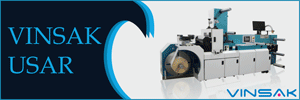
Ball Corporation, one of the world’s leading suppliers of metal packaging and aerospace technologies, supplies innovative, sustainable packaging solutions for beverage, personal care and household products customers, as well as aerospace and other technologies and services primarily for the US government. Ball Corporation and its subsidiaries employ 17,500 people worldwide and reported 2018 sales of US$ 11.6 billion.
Bengaluru-headquartered Ball India, a subsidiary of Ball Corporation, manufactures two-piece aluminium beverage cans in two fully owned facilities in Taloja, Maharashtra and Sri City in Andhra Pradesh. The Taloja plant was set up in 2006 while the second beverage can-making plant in Sri City was set up just three years ago. Ball also has an aerosol can plant located at Sanand in Gujarat, which is run by a separate management team. The Sanand plant started its operations in October 2015. In addition, the company has a global IT center in Hyderabad.
Quite optimistic about Ball’s growth in India, Amit Lahoti, managing director of Ball Beverage Packaging in India, said that the current total capacity of Ball in India is close to 1.3 billion cans. Ball supplies its beverage cans to companies such as Coca Cola and PepsiCo which are its biggest customers in India, in addition to numerous beer companies in India. The company has the capacity to produce 250 ml, 350 ml and 500 ml metal cans in the country. Within the Asia Pacific and the Middle East region, the company produces 6 to 7 different sizes which can help supplement local production in order to grow the market. Across India there are nearly 35 to 40 beverage filling and sealing locations for metal cans. Ball partners with brand owners and the co-packers to help them with packaging design solutions. Ball’s investment in India stands at Rs. 1,000 crores.
Lahoti said, “India consumes close to 20 billion packages and the share of metal packaging is comparatively small in India. Going by the growth trend, we see that by 2030, India will consume close to 50 billion packages which takes the growth in the consumption of beverage packaging to 8%.” Ball is also working with several dairy brands to leverage aluminum as a packaging material for their products. At the same time, it is aiming at the nascent but upcoming craft brewery market in the country.
In terms of metal packaging, the penetration of metal cans in developing markets such as Brazil is close to 100 cans per capita. Vietnam, having a similar GDP as India, has 70 cans per capita consumption. Whereas in India, the consumption is less than 1 can per capita. So there is a huge growth opportunity in India in days to come. An aluminium can weighs just 15 grams whereas a glass bottle, on an average, weighs over 200 grams. Trucks carrying cans are able to transport twice as much liquid as a truck loaded with bottles with much lesser leakage or breakage. Being infinitely recyclable, a used can is able to return to the shelf as a new can in just 60 days. All these advantages make aluminium beverage packing ideally suited for the fast-growing Indian beverage market. However, Lahoti points to some of the challenges in India, such as excise duty on beer in glass bottles being lower in states such as Andhra Pradesh and Telangana, than beer packed in metal cans.









